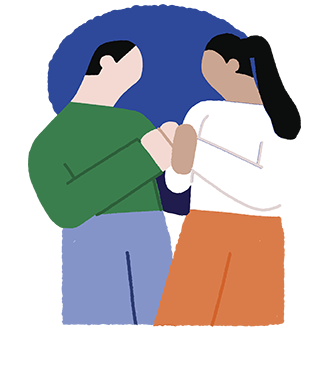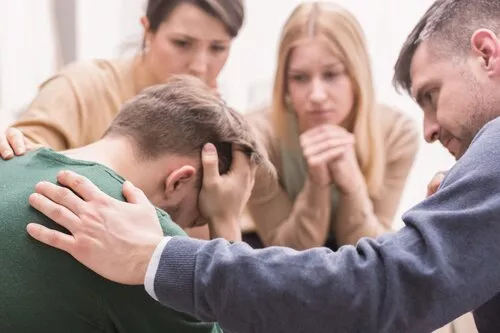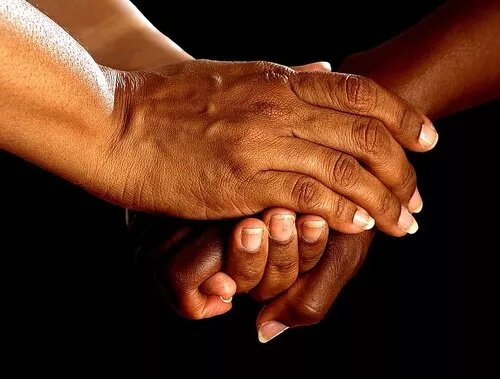As a parent, few conversations are as crucial – or as challenging – as discussing addiction with your child. The statistics are sobering: 74% of people seeking addiction treatment began using substances before age 17, and early substance use quadruples the risk of developing a substance use disorder. While these numbers may seem alarming, they also highlight why having this conversation early is so vital.
This guide will help you navigate this critical discussion with confidence. We’ll explore proven approaches to create an open dialogue with your teenager about addiction, providing you with practical tools and strategies to help your child make informed decisions about their health and future. By fostering understanding and maintaining open communication, you can help protect your child from the devastating impacts of addiction while strengthening your relationship with them.
Addiction is a complex brain disorder where a person develops an uncontrollable dependence on substances or behaviors, despite harmful consequences. It transforms what starts as a voluntary choice into a compulsive need, fundamentally changing how the brain processes pleasure, motivation, and self-control.
Young people commonly struggle with several types of addiction, including alcohol, stimulants (cocaine, methamphetamine, Adderall), sedatives (Xanax, Valium, Klonopin), opioids (heroin, fentanyl, OxyContin), nicotine (cigarettes, vaping), and cannabis. Beyond substances, many teenagers struggle with behavioral addictions, such as gaming, gambling, social media, and eating disorders.
As addiction develops, it creates three major changes:
Risk factors for addiction include:
Warning signs to watch for include:
Understanding these warning signs and risk factors is crucial for early intervention. When parents can recognize potential problems early, they’re better equipped to have meaningful conversations with their children about addiction, which is why we’ll explore how to approach these discussions next.
Starting conversations about addiction early is crucial, even if it feels uncomfortable. Dr. Nzinga Harrison, an addiction specialist, shares her experience of discussing addiction with pre-kindergarten students during Career Day: “These pre-K kids were worldly. They knew exactly what alcohol and drugs were.” She discovered that children as young as four were already aware of substance use in their environment, often noticing behaviors like “when my daddy hides his beer cans in the trash so mommy won’t see.”
This awareness demonstrates why it’s essential to provide accurate, age-appropriate information early. Rather than leaving children to piece together their understanding from observations or peers, parents can frame addiction as a health issue: “When mommy or daddy or your brother or sister has a cold and they’re really sick, and you want to do everything you can to help them feel better? This is the same thing. People get sick, and they have this addiction, and we want to do everything we can to help them get better.”
Many parents feel anxious about starting conversations about addiction, worried they’ll say the wrong thing or make matters worse. However, research shows that having these discussions early and often makes a significant difference in preventing substance use disorders. The following strategies can help you approach these conversations with confidence:
Remember that this isn’t a one-time discussion but rather the beginning of an ongoing dialogue. Each conversation builds trust and understanding, making it easier for your child to come to you with questions or concerns in the future. As you move forward, focus on developing healthy coping mechanisms and emotional awareness, which we’ll explore in the next section.
Teaching children to manage emotions early can significantly reduce their risk of substance use later in life. However, Dr. Harrison emphasizes that effective emotional support must be tailored to each child’s unique personality.
Dr. Harrison shares her experience with her two sons, demonstrating how different personalities require different approaches:
Regardless of personality type, certain foundational tools benefit all children:
The key is to recognize your child’s natural tendencies and adapt your approach accordingly while maintaining these core support strategies. This personalized approach helps children develop resilience and healthy coping mechanisms that can protect them from substance use later in life.
Approaching addiction conversations through listening, rather than lecturing, creates a safe space for children to share their experiences and ask questions. Dr. Nzinga Harrison, an addiction specialist and psychiatrist, emphasizes that teenagers are independent thinkers capable of connecting their thoughts, feelings, and decisions when given the space to do so.
Start by asking open-ended questions about their experiences and emotions: “What are your thoughts about addiction? How has your life experience shaped your thinking?” This approach builds trust and shows respect for their perspective.
Persistence is crucial, even when conversations become difficult. As Dr. Harrison’s teenage son Zahir advises, “Never actually give up on talking to them, because if you keep trying, eventually you’re going to break through.” This consistent effort shows children they can always reach out to you.
Education should follow listening. Share age-appropriate information about:
By prioritizing listening over immediate education, you create a foundation of trust and understanding. This approach shows your child that their thoughts and experiences matter, making them more receptive to learning about addiction prevention and seeking help when needed.
Dr. Harrison offers these evidence-based strategies for having more effective and compassionate conversations about addiction:
These strategies work together to create a supportive environment where your child feels heard and understood. While these conversations may feel challenging at first, consistent practice using these approaches will help you recognize when professional support might be beneficial, which we’ll explore next.
Dr. Nzinga Harrison emphasizes that seeking help doesn’t always mean pushing for complete abstinence. When teenagers struggle with substance use, they often resist treatment because they fear an all-or-nothing approach. Instead, she recommends:
Signs that professional guidance could help include:
Encourage your child to seek help and support them in finding the right treatment option. There are multiple levels of addiction treatment, such as detox, inpatient or residential rehab stays, or outpatient treatment. Medications can be used for some forms of addiction to help reduce cravings and prevent use. Additionally, individual and family therapy can decrease the risk of relapse.
Remember that recovery looks different for everyone. While complete abstinence might be necessary for some, others might benefit from learning controlled use strategies under professional guidance. The goal is to meet your child where they are while ensuring their safety and supporting their growth toward healthier choices.
Support groups can also be beneficial, and there are many options from 12-Step programs like AA or NA to more skill-focused groups such as SMART Recovery. Accompanying your child to support groups can help affirm your commitment to their recovery.
 E-book: How to Help a Loved One Struggling with Substance Use Disorder
E-book: How to Help a Loved One Struggling with Substance Use Disorder
 Alcoholism: A Family Disease
Alcoholism: A Family Disease
 How To Help Someone Through Drug or Alcohol Withdrawal
How To Help Someone Through Drug or Alcohol Withdrawal